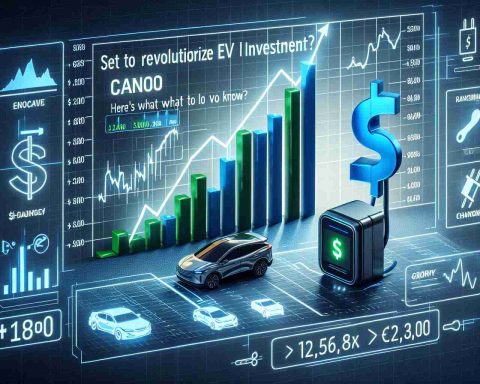Revolutionizing the Roads with Smart Technology
Tesla’s artificial intelligence initiatives are primarily centered on enhancing self-driving capabilities. This focus on autonomy has created a strong advantage, setting Tesla apart in an increasingly competitive landscape. While various competitors, including AI platforms and foreign automakers, are attempting to advance their own technologies, Tesla has built a strategic barrier that makes these challenges less formidable.
The company’s commitment to developing sophisticated AI systems specifically designed for vehicle navigation allows it to maintain a leading position in the market. Unlike many traditional car manufacturers and emerging tech firms, Tesla’s proprietary approach to AI and machine learning enables them to refine their technology continuously.
Moreover, the company’s well-established data collection processes provide invaluable insights, feeding its AI algorithms with real-world driving experiences. This data-driven strategy is not commonly replicated among competitors, solidifying Tesla’s unique position.
As other players enter the self-driving arena with innovative technologies, Tesla remains vigilant, utilizing its advanced AI framework to not just compete but dominate. Through its relentless pursuit of autonomy and safety, Tesla aims to set new milestones for the automotive industry while undoubtedly reshaping how we think about transportation in the future.
With such advancements in the pipeline, the race for self-driving supremacy is heating up, but Tesla appears to be steering ahead.
Shaping the Future: The Broader Implications of Smart Technology in Transportation
The rise of smart technology in transportation, spearheaded by companies like Tesla, is not just a technological shift; it carries profound societal and cultural implications. As autonomous vehicles become increasingly commonplace, there are significant changes in how we view mobility. With self-driving cars, urban planning is likely to evolve, emphasizing walkable cities and reducing the need for vast parking infrastructures. This shift could promote environmental sustainability by fostering public transportation usage and minimizing urban congestion.
The global economy is poised for transformation as well. Industries reliant on conventional driving, such as insurance and trucking, may experience upheaval as autonomous vehicles gain prevalence. For instance, the shift to self-driving technology could potentially reduce accident rates, drastically changing the landscape of vehicle insurance. In turn, companies will need to innovate their business models to adapt to an era where vehicles can operate without human involvement.
Environmental considerations are equally crucial. The integration of AI and automation may lead to a reduction in emissions as electric vehicle (EV) technology synergizes with self-driving capabilities. Future trends suggest an increase in shared autonomous vehicle services, reducing the individual car ownership model, which may ultimately contribute to a decrease in carbon footprints.
As we look ahead, the long-term significance of these advancements in smart transportation technology offers a blueprint for an interconnected, efficient, and sustainable society, encouraging a new era of mobility redefined.
How Tesla is Paving the Way for the Future of Autonomous Driving
Revolutionizing the Roads with Smart Technology
Tesla’s commitment to artificial intelligence (AI) and machine learning is setting new standards in the autonomous vehicle sector. As competition intensifies among automakers and tech companies, Tesla differentiates itself through its unique AI strategy and vast data collection efforts.
Features and Innovations
Tesla’s vehicles are equipped with advanced sensors and communication systems that allow them to gather extensive data from countless driving scenarios. This information is pivotal for training Tesla’s AI algorithms, enabling more refined predictive driving and enhanced decision-making capabilities. Such features are crucial as they directly contribute to safety and efficiency.
Pros and Cons
– Pros: Unmatched real-world data analytics, leading AI-driven navigation, continuous software updates.
– Cons: Regulatory hurdles, ethical concerns regarding AI decision-making.
Market Analysis and Trends
The autonomous vehicle market is projected to grow significantly, with Tesla being at the forefront. Companies like Waymo and traditional automakers are also investing heavily in AI, yet they face challenges in data acquisition that Tesla has effectively overcome.
Use Cases
Tesla’s self-driving technology can be leveraged in various sectors, including ride-sharing and logistics, showcasing the versatility of its systems.
Security Aspects
As Tesla expands its AI capabilities, it also emphasizes security, addressing concerns over data privacy and vehicle safety with robust encryption and frequent software updates.
In a rapidly evolving industry, Tesla’s innovative approach continues to reshape how we think about transportation, ensuring that they remain a leading force in the quest for fully autonomous vehicles. For more information, visit Tesla.


















